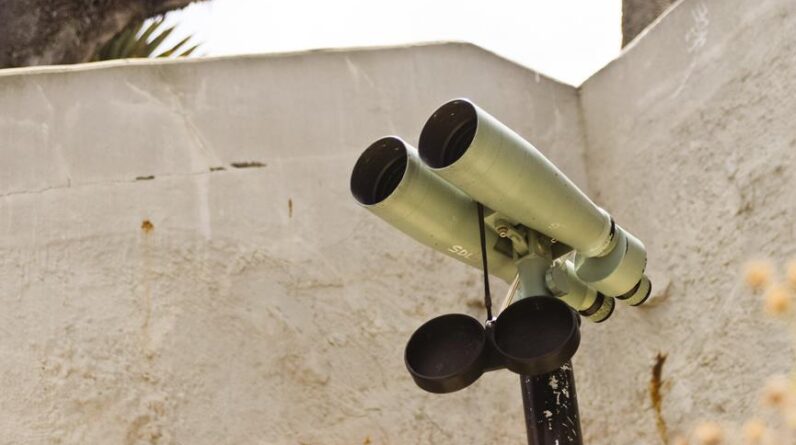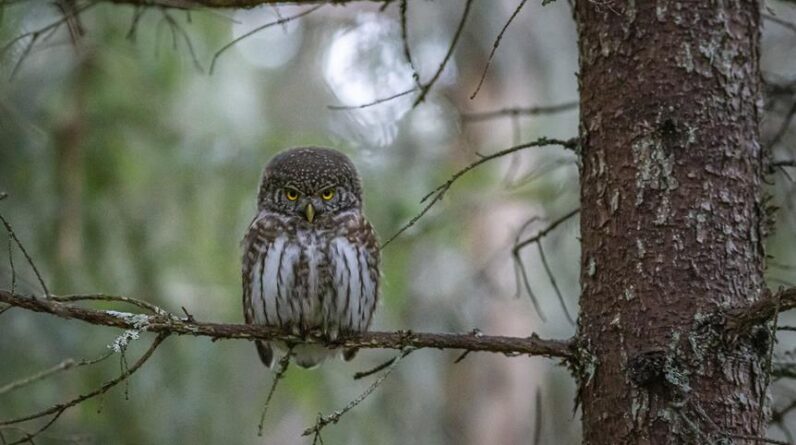
Want to experience the wonders of nature up close and personal? Look no further than binoculars, your essential tool for nature observation.
With these handy devices, you can see it all – from the graceful flight of a bird to the intricate details of a flower petal.
Whether you're a seasoned nature enthusiast or just starting your outdoor adventures, binoculars will elevate your experience to new heights.
Get ready to immerse yourself in the beauty of the natural world with the help of these remarkable optical wonders.
Key Takeaways
- Binoculars enhance clarity and detail for observing nature.
- Choosing the right binoculars involves considering factors like field of view, magnification power, and lens coating.
- Proper technique for using binoculars includes holding them steady, adjusting interpupillary distance and focus, and keeping both eyes open.
- There are different types of binoculars available, such as compact, full-size, zoom, image-stabilized, and waterproof, each with their own advantages for nature observation.
The Benefits of Using Binoculars for Nature Observation
You'll love the enhanced clarity and detail that binoculars offer for observing nature. With their powerful lenses and magnification capabilities, binoculars allow you to see every intricate detail of the natural world around you.
Imagine being able to spot the vibrant feathers of a bird perched high up in a tree or the delicate patterns on a butterfly's wings as it flutters by. Binoculars bring you closer to the wonders of nature, allowing you to truly appreciate its beauty.
Whether you're birdwatching, hiking, or simply exploring the great outdoors, binoculars provide a sense of liberation, enabling you to see things that would otherwise be hidden or distant.
How to Choose the Right Binoculars for Your Nature Adventures
When selecting binoculars for your nature adventures, consider the field of view and magnification power to ensure optimal viewing. The field of view refers to the width of the area you can see through the binoculars, while the magnification power determines how much closer the objects appear.
Here are five factors to consider when choosing the right binoculars for your nature adventures:
- Size and Weight: Opt for lightweight and compact binoculars that are easy to carry and won't weigh you down during long hikes.
- Lens Coating: Look for binoculars with fully multi-coated lenses to enhance light transmission and reduce glare, resulting in clearer and brighter images.
- Waterproof and Fogproof: Ensure that your binoculars are built to withstand the elements, so you can confidently explore nature in any weather conditions.
- Eye Relief: If you wear glasses, choose binoculars with long eye relief to provide ample space between your eyes and the eyepieces for comfortable viewing.
- Focus System: Consider binoculars with a smooth and precise focus system that allows you to quickly adjust the focus and capture the details of your surroundings effortlessly.
Techniques for Properly Using Binoculars in the Field
To maximize your observation skills, practice proper binocular handling techniques in the field.
Start by holding the binoculars with both hands, keeping them steady against your face. Adjust the interpupillary distance to ensure a clear and comfortable view.
Use the focus wheel to sharpen the image, moving it slowly until the subject comes into clear focus. As you observe, keep both eyes open to maintain depth perception and reduce eye strain.
When tracking moving subjects, follow them smoothly by turning your whole body, rather than just moving your hands. Remember to breathe steadily and relax your muscles to minimize shaking.
Finally, don't forget to clean your binoculars regularly to maintain optimal viewing conditions.
With these techniques, you'll be able to fully immerse yourself in the wonders of nature.
Exploring Different Types of Binoculars for Nature Observation
To fully explore the world of nature observation, try out different types of binoculars and discover the one that suits your needs best. Here are some options to consider:
- Compact binoculars: These are lightweight and portable, making them perfect for hikers and travelers.
- Full-size binoculars: With larger objective lenses, these provide better image quality and are ideal for birdwatching or wildlife observation.
- Zoom binoculars: These allow you to adjust the magnification, giving you versatility in different viewing situations.
- Image-stabilized binoculars: These feature built-in stabilization technology to minimize hand shake, providing a steady view even at higher magnifications.
- Waterproof binoculars: Designed to withstand wet conditions, these are great for nature enthusiasts who enjoy observing near bodies of water or in rainy weather.
Now that you know about different types of binoculars, let's move on to the next section and learn some tips and tricks for getting the most out of your binoculars.
Tips and Tricks for Getting the Most Out of Your Binoculars
With a little practice and these helpful tips, you can make the most out of your binoculars and enhance your nature observation experience.
First, make sure to adjust the eyepieces to match the distance between your eyes. This will ensure a clear and comfortable view.
Next, use both hands to hold the binoculars steady, placing your thumbs on the underside of the barrels for support.
When looking through the lenses, try closing one eye and using the other to focus on your subject.
If you wear glasses, adjust the eyecups to a comfortable position or simply fold them down.
Lastly, practice scanning the landscape slowly and systematically to spot wildlife more easily.
Frequently Asked Questions
Can Binoculars Be Used for Activities Other Than Nature Observation?
Yes, binoculars can be used for more than just nature observation. They are also great for bird watching, stargazing, sporting events, and even concerts. They enhance your viewing experience and bring things closer to you.
Are There Any Disadvantages to Using Binoculars for Nature Observation?
Yes, there are a few disadvantages to using binoculars for nature observation. They can be heavy and cumbersome to carry, and they may not be suitable for observing small, fast-moving creatures.
Can I Use Binoculars While Wearing Glasses?
Yes, you can use binoculars while wearing glasses. The adjustable eyecups allow you to create a comfortable viewing experience. Simply twist them up or down to find the perfect fit for your vision needs. Enjoy observing nature without any hindrance!
How Do I Clean and Maintain My Binoculars?
To clean and maintain your binoculars, start by gently brushing off any dirt or debris. Then, use a lens cleaning solution and a microfiber cloth to clean the lenses. Remember to store them in a dry and protective case when not in use.
What Is the Average Lifespan of a Pair of Binoculars?
On average, the lifespan of a pair of binoculars is influenced by factors such as usage, maintenance, and quality. With proper care, they can last for many years, providing you with endless opportunities to observe nature's wonders.





